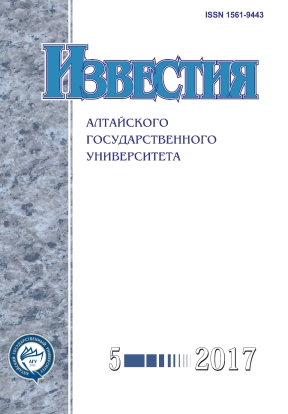Propaganda Activities of the Youth Movement in Great Britain in 1960s–1970s
DOI:
https://doi.org/10.14258/izvasu(2017)5-28Keywords:
Great Britain, youth movement, propaganda, protest movement, left-wing, right-wingAbstract
The article studies the ways the 1960s–1970s youth movement of Great Britain used to propagandize their ideas. The article analyzes the written sources of information, such as newspapers, leaflets, brochures, manifestos and the literature popular among youth protest supporters. It is clarified that the 1960s–1970s youth movement was not homogeneous. Conditionally, we can divide it into political and apolitical trends. Within these trends not all groups of youth movement, such as subcultures, student unions and youth wings of political parties, propagandized their ideas. Left-wing and rightwing youth organizations and unions can be included into the number of those who conducted propaganda. The main forms of propaganda they used were: publishing activity, agitation marches, rallies and demonstrations. Despite the fact that the left movement was more popular than the right movement, it could not destabilize the situation with propaganda methods due to the disunity of leftwing movement, such as Maoism, Trotskyism and “New Left” etc. Another reason was the existence of the Labour Party which collected most of the protest votes among the British youth.
DOI 10.14258/izvasu(2017)5-28
Downloads
References
Horn G-R. The Spirit of «68: Rebellion in Western Europe and North America, 1956-1976. — N.Y., 2007.
Klimke M., Scharloth J. 1968 in Europe: A History of Protest and Activism. — N. Y, 2008.
Hoefferle C. British Student Activism in the Long Sixties. — N.Y, 2013.
Thomas N. Challenging Myths of the 1960s: The Case of Student Protest in Britain // Twentieth Century British History. — 2002. — №13(3).
Troschitz R. Higher Education and the Student: From Welfare State to Neoliberalism. — L., 2017.
Boran E., Dhondt P. Student Revolt, City, and Society in Europe: From the Middle Ages to the Present. — L., 2017.
Ellul J. Propaganda: The Formation of Men's Attitudes. — N.Y., 1973.
Cohen S. Folk Devils and Moral Panics: The Creation of the Mods and Rockers. — N.Y, 2002.
Интернет-архив журнала «Новое левое обозрение» (New Left Review) [Электронный ресурс] URL: https:// newleftreview.org (дата обращения: 20.06.2017).
Black L. Redefining British Politics: Culture, Consumerism and Participation, 1954-70. — N.Y, 2010.
Hall S., Thompson E., Williams R. New Left May Day Manifesto. — L., 1967.
Интернет-архив газеты «Черный карлик» (Black Dwarf). [Электронный ресурс] — URL: https://www. marxists.org/history/etol/newspape/black-dwarf/index.htm (дата обращения: 21.06.2017).
Shaffer R. The Soundtrack of Neo-Fascism: Youth and Music in the National Front // Patterns of Prejudice. — 2013. — № 47 (4-5).
Gregoire R., Perlman F. Worker-Student Action Committees: France May ‘68. — Detroit, 2002.
Downloads
Issue
Section
License
Izvestiya of Altai State University is a golden publisher, as we allow self-archiving, but most importantly we are fully transparent about your rights.
Authors may present and discuss their findings ahead of publication: at biological or scientific conferences, on preprint servers, in public databases, and in blogs, wikis, tweets, and other informal communication channels.
Izvestiya of Altai State University allows authors to deposit manuscripts (currently under review or those for intended submission to Izvestiya of Altai State University) in non-commercial, pre-print servers such as ArXiv.
Authors who publish with this journal agree to the following terms:
- Authors retain copyright and grant the journal right of first publication with the work simultaneously licensed under a Creative Commons Attribution License (CC BY 4.0) that allows others to share the work with an acknowledgement of the work's authorship and initial publication in this journal.
- Authors are able to enter into separate, additional contractual arrangements for the non-exclusive distribution of the journal's published version of the work (e.g., post it to an institutional repository or publish it in a book), with an acknowledgement of its initial publication in this journal.
- Authors are permitted and encouraged to post their work online (e.g., in institutional repositories or on their website) prior to and during the submission process, as it can lead to productive exchanges, as well as earlier and greater citation of published work (See The Effect of Open Access).








